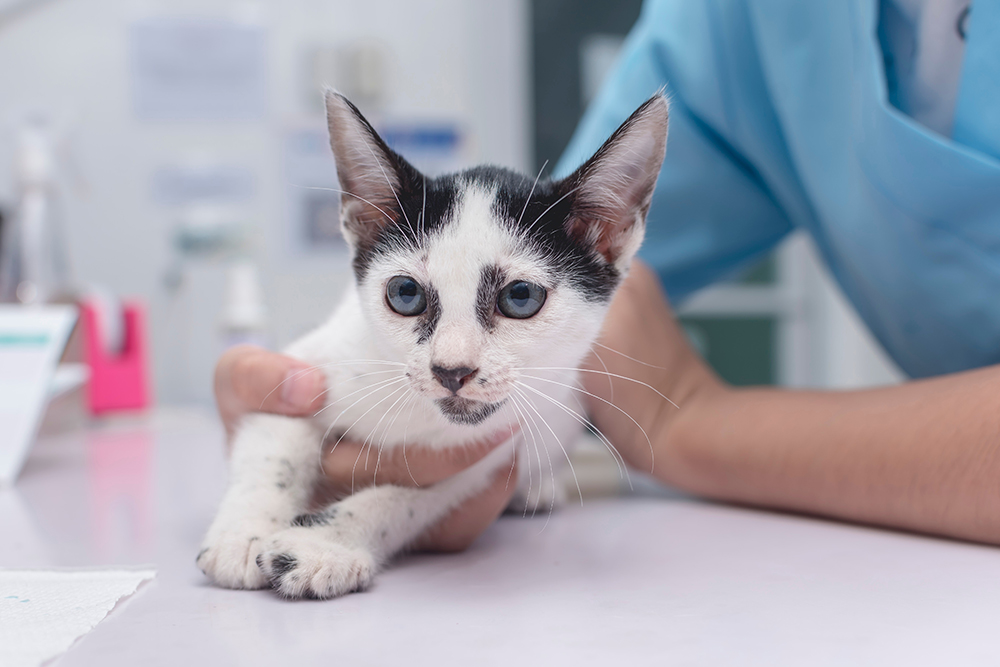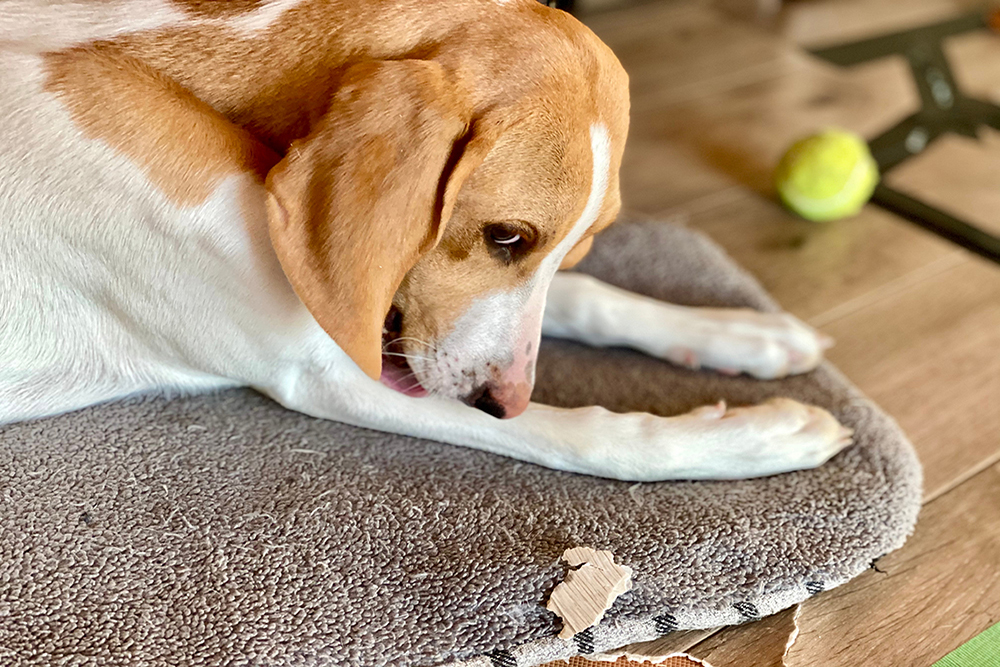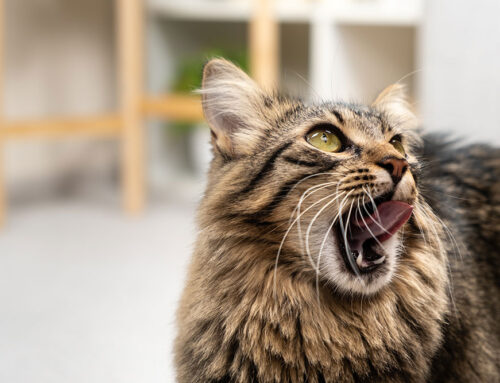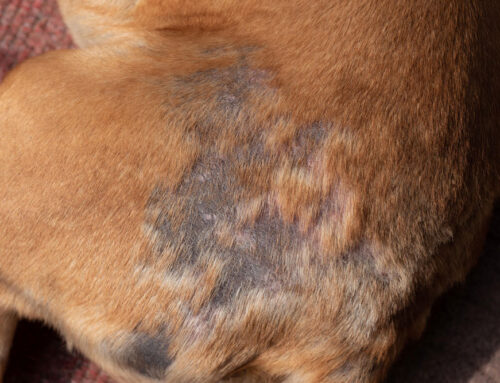Understanding Stress and Anxiety in Pets: A Guide for Dayton Pet Owners
Stress and anxiety are more prevalent in pets than often realized, impacting their physical health and emotional well-being. At Twin Maples Veterinary Hospital, we recognize the complexities of these conditions and are committed to assisting Dayton’s pet owners in effectively managing their pet’s stress and anxiety. This guide will help you identify the signs of stress and anxiety in your pets and offer practical strategies to support them.
Recognizing Stress and Anxiety in Dogs
Physical Symptoms
Dogs may display several physical symptoms when stressed, including:
- Excessive Panting and Drooling: This may indicate acute stress or overheating. Persistent symptoms can lead to dehydration or worsen respiratory issues, especially in susceptible breeds.
- Frequent Shaking or Shivering: Often confused with cold, shivering can signal fear or anxiety. Continued shaking may cause muscular fatigue and warrants investigation of underlying causes.
- Decreased Appetite or Digestive Issues: Stress can lead to gastrointestinal problems such as vomiting or diarrhea. Persistent issues may result in weight loss and nutritional deficiencies.
- Unexplained Aggression or Withdrawal: Stress might manifest as aggression or withdrawal, affecting interactions with humans and other animals, and potentially leading to isolation or behavioral issues.
Behavioral Changes
Behavioral changes are often key indicators of anxiety in dogs:
- Increased Clinginess or Shadowing Behavior: Dogs with separation anxiety or stress may follow their owners closely, seeking reassurance.
- Destructive Behavior When Left Alone: Chewing furniture or scratching doors may indicate anxiety. This behavior can escalate, causing potential injury or property damage.
- Excessive Barking or Howling: Vocalizations can indicate distress and disturb neighbors. Persistent noise may lead to throat irritation or vocal cord damage.
For more detailed information, see the ASPCA’s article on Separation Anxiety in Dogs.
Causes of Anxiety in Dogs
Several factors can trigger anxiety in dogs:
- Common Triggers Include Thunderstorms and Fireworks: Noise aversion is widespread and can develop into chronic anxiety disorders without intervention. For more, see Noise Aversion in Pets.
- Changes in Routine and Environment: Moving homes or changes in family structure can unsettle pets. Routine disruptions may lead to long-term anxiety if not managed carefully.
- Past Experiences and Breed-Specific Predispositions: Certain breeds are more prone to anxiety due to genetic factors. Understanding your pet’s history can help tailor appropriate interventions.
Signs of Stress and Anxiety in Cats
Physical Symptoms
Cats may not be as expressive as dogs, but they also show physical signs of stress:
- Over-Grooming Leading to Bald Patches: This can result in skin infections and irritation. Persistent over-grooming is a sign of severe stress and requires medical intervention to prevent further dermatological issues.
- Changes in Litter Box Usage: Avoiding the litter box can indicate stress or medical problems like urinary tract infections, which need immediate attention.
- Signs of Aggression or Increased Hiding: Cats may scratch or hiss when stressed, affecting their social interactions. Prolonged hiding can lead to decreased physical activity and social withdrawal.
- Sudden Changes in Weight: Weight loss or gain can signal stress-related eating disorders, impacting overall health.
Behavioral Indicators
Cats may show anxiety through various behavioral changes:
- Increased Scratching of Furniture or Other Surfaces: This behavior can be a method of stress relief but leads to household damage. Providing appropriate outlets is essential.
- Vocalization Changes Like Increased Meowing or Growling: Such changes can indicate distress or a need for attention.
- Changes in Interaction, Such as Avoidance of Contact or Increased Clinginess: These behaviors can affect the human-animal bond and signal a need for environmental or social adjustments.
Expert Advice from Twin Maples Veterinary Hospital
Importance of Professional Diagnosis
Consulting a veterinarian is crucial to distinguish between medical and behavioral signs of stress. Misdiagnosing anxiety can lead to inappropriate treatments that may worsen the condition or overlook serious health issues. A thorough veterinary assessment can provide a roadmap for effective intervention.
Treatment Options
Treatment for anxious pets can vary and may include:
- Behavioral Therapy: Professional training and desensitization techniques can help modify stress responses, encouraging healthier coping mechanisms.
- Medication: In severe cases, medication can manage symptoms, allowing pets to engage more successfully in behavioral therapies.
- Lifestyle Changes: Adjustments such as increased exercise, socialization, and environmental enrichment can significantly reduce stress levels.
Approach treatment on a case-by-case basis, as recommended by a professional.
Practical Tips for Dayton Pet Owners
Creating a Stress-Free Home Environment
Creating a calming environment can significantly reduce anxiety in pets. Consider these tips:
- Establish a Safe Space: Provide a designated area with familiar scents and comfort items to help pets feel secure during stressful situations.
- Maintain a Consistent Routine: Regular feeding, exercise, and playtimes create a predictable environment that reduces anxiety.
- Choose Toys and Activities That Reduce Stress: Interactive toys, puzzle feeders, and calming music offer mental stimulation and relaxation.
When to Seek Professional Help
Recognizing when to seek veterinary help is crucial for your pet’s health. Consider professional guidance if:
- Symptoms Persist Despite Home Interventions: Persistent signs of stress or anxiety require professional guidance to prevent escalation.
- Sudden Changes in Behavior or Health: Swift changes can indicate serious underlying issues needing immediate attention.
For routine check-ups or more urgent concerns, visit our Request Appointment page.
Twin Maples Veterinary Hospital: Your Partner in Pet Health in Dayton
At Twin Maples Veterinary Hospital, we take a comprehensive approach to pet wellness, addressing both physical and emotional health. Our commitment to providing high-quality care is echoed through testimonials from many pet owners in Dayton. Our team is trained to recognize and treat stress and anxiety with compassion and expertise, ensuring your pet receives the best care possible. For more information or to plan your visit, contact us. Learn more about our team at Twin Maples Veterinary Hospital.

FAQs
Q: How can I tell if my pet’s anxiety is severe enough to need professional help?
A: If your pet’s anxiety leads to destructive behavior, health issues, or impacts their daily life, it’s time to seek professional advice. Persistent symptoms that don’t improve with home interventions also warrant a veterinary consultation.
Q: Are there any natural remedies I can try at home to help my anxious pet?
A: Yes, natural calming remedies like pheromone diffusers, thundershirts, herbal supplements, and dietary changes can help. However, these should complement, not replace, professional advice, especially in severe cases.
Q: What is the long-term outlook for pets with anxiety?
A: With proper treatment and management, many pets can lead happy, healthy lives. Early intervention and consistent care are key to improving outcomes and preventing long-term issues.









Leave A Comment